
Coronary Artery Scan: What It Shows and Why It Matters for Prevention
Coronary Artery Scan: What It Shows, Who Needs It, and
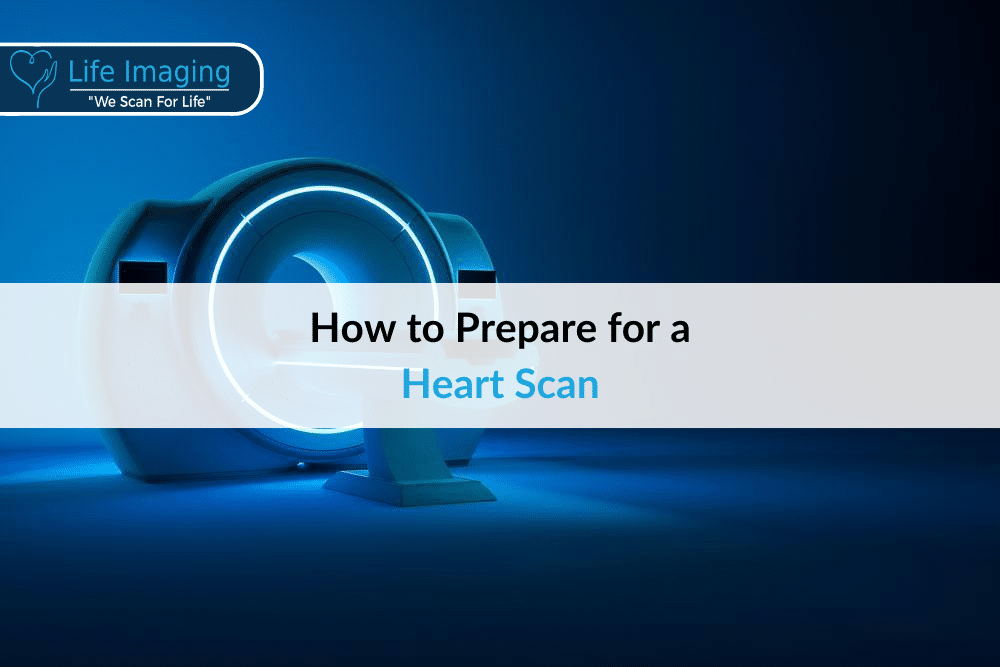
Heart disease is a leading cause of health issues for many people. Early detection plays a crucial role in managing and treating heart conditions successfully. If you live in Deerfield and are preparing for a heart scan, taking the right steps can improve the accuracy and comfort of your experience. Life Imaging Fla, an imaging center dedicated to the early detection of heart disease and cancer, offers comprehensive heart scans to help you stay ahead of potential health problems.
Knowing what to expect before, during, and after your heart scan can reduce anxiety and ensure a smooth process. From understanding why heart scans are important to tips on preparing for the procedure, this guide will provide all the information you need. Non-invasive imaging procedures like CT coronary artery calcium (CAC) scoring scans are valuable tools for assessing heart health. These scans can detect plaque buildup in the arteries, providing critical insights into your cardiovascular health.
Proper preparation enables healthcare providers to capture clear, accurate images, leading to better diagnostic outcomes. This article will walk you through each step of preparing for a heart scan at Life Imaging Fla, ensuring you feel informed and confident about your procedure. Let’s dive into the details so you can take proactive steps toward maintaining your heart health.
Heart scans are imaging tests that help detect heart disease early. These scans are usually done using a CT machine, which takes detailed pictures of your heart and arteries. They are especially useful for finding calcium deposits in the coronary arteries. These deposits can indicate plaque buildup, which can lead to heart disease.
Early detection of heart problems allows doctors to treat conditions before they become serious. By spotting potential issues early, you can make lifestyle changes or start treatments that can help protect your heart. For residents of Deerfield, getting a heart scan can be a vital step toward maintaining good heart health.
The first step to preparing for a heart scan is scheduling your appointment. Contact Life Imaging Fla to find a convenient time for your scan. When scheduling, be sure to mention any health conditions or concerns you have. This information helps the staff prepare for your visit and ensures that the scan is tailored to your needs.
Make sure to choose a time when you can relax before and after the procedure. Avoid scheduling other stressful activities on the same day. Being calm and rested can make the scan more comfortable.
In the days leading up to your heart scan, there are several things you can do to prepare. These steps can help make the process smooth and stress-free.
You will usually be asked to avoid eating or drinking anything for a few hours before your scan. This helps ensure clear images. Follow any specific instructions given by the imaging center regarding fasting.
Inform the staff about any medications you are taking. Some medicines can affect the results of your heart scan. Your doctor may advise you to skip certain medications on the day of the scan. However, never stop taking medication without your doctor’s approval.
Wear comfortable clothing to your appointment. You might need to change into a gown for the scan, but wearing loose-fitting clothes can make this easier. Avoid wearing jewelry or clothing with metal parts, as these can interfere with the images.
If you feel anxious about the procedure, talk to the staff. They can explain the process in detail and answer any questions you have. Knowing what to expect can help you feel more at ease.
On the day of your heart scan, there are a few more steps to ensure everything goes smoothly.
Plan to arrive at Life Imaging Fla a little early. This gives you time to fill out any necessary paperwork and settle in before the scan. Bring your ID, insurance card, and any other required documents.
The staff will guide you through the check-in process and may ask you some questions about your health history. Answering these questions truthfully helps the staff provide the best care possible.
When it’s time for your scan, you will be taken to the CT scanning room. You will lie down on a table that slides into the CT machine. The technician will position you correctly and may place small electrodes on your chest. These electrodes help monitor your heart’s activity during the scan.
The procedure is painless and usually takes about 10 to 15 minutes. The technician will control the machine from a nearby room, but they will be able to see and hear you at all times. You might be asked to hold your breath for short periods to get clear images.
Stay still and follow the technician’s instructions. This helps ensure that the images are of good quality.
After the scan, there are a few steps to complete your preparation.
You won’t get the results immediately. A doctor will review the images and prepare a report. This can take a few days. Once the report is ready, your doctor will discuss the results with you.
Understanding the findings is essential. If calcium deposits or other issues are found, your doctor will explain what this means for your heart health and recommend the next steps.
Based on the scan results, your doctor may suggest lifestyle changes, medications, or other treatments. Following these recommendations is crucial to maintaining your heart health.
Regular check-ups and heart scans can help track any changes in your condition. Discuss with your doctor how often you should have heart scans based on your health status.
It’s natural to feel some anxiety before a heart scan. Here are some tips to help reduce stress:
Knowing what to expect can ease your mind. Read about heart scans and ask the imaging center staff any questions you have.
Practice deep breathing, meditation, or other relaxation techniques. These can help calm your nerves before and during the scan.
Having a friend or family member with you can provide comfort and support. They can help distract you and keep you calm.
Let the staff know if you are feeling anxious. They are there to help you and can provide reassurance.
Creating a checklist can make the preparation process easier. Here are some key points to include:
– Schedule your appointment at Life Imaging Fla.
– Follow fasting instructions if required.
– Wear comfortable, metal-free clothing.
– Arrive early for your appointment.
– Bring necessary documents (ID, insurance card).
– Inform staff about any medications or health conditions.
– Prepare questions to ask the staff or doctor.
Understanding Risk Factors for Heart Disease
While preparing for your heart scan, it’s helpful to understand why these scans are important. Knowing the risk factors for heart disease can motivate you to take preventive measures.
– High blood pressure
– High cholesterol
– Smoking
– Obesity
– Lack of physical activity
– Unhealthy diet
– Family history of heart disease
If you have any of these risk factors, a heart scan can be a valuable tool for early detection and prevention.
Preparing for a heart scan also means considering lifestyle changes that can improve your heart health. Here are some tips:
Eat a balanced diet rich in fruits, vegetables, whole grains, and lean proteins. Avoid processed foods and limit your intake of salt, sugar, and unhealthy fats.
Aim for at least 30 minutes of moderate exercise most days of the week. Activities like walking, swimming, and biking can help keep your heart healthy.
If you smoke, seek help to quit. Smoking is a major risk factor for heart disease.
Find healthy ways to manage stress, such as practicing mindfulness, yoga, or spending time with loved ones.
A heart scan uses advanced imaging technology to take detailed pictures of your heart and blood vessels. Understanding how this technology works can help you feel more comfortable with the procedure.
The CT scanner uses X-rays to create cross-sectional images of your heart. The machine takes multiple pictures from different angles, which are then combined to create a detailed view of your heart and arteries. This allows doctors to see any calcium deposits or other issues that might not be visible through other tests.
Knowing the risks and benefits of heart scans can help you feel better prepared. While heart scans are generally safe, it’s important to be aware of both positive and negative aspects.
– Early Detection: Heart scans can detect early signs of heart disease, allowing for timely treatment.
– Non-Invasive: The procedure is non-invasive and usually quick, causing minimal discomfort.
– Accurate Results: Heart scans provide detailed images of your heart and arteries, offering precise information about your heart health.
– Peace of Mind: Knowing the state of your heart can alleviate worries and help you take preventive measures if needed.
– Radiation Exposure: Heart scans involve exposure to a small amount of radiation. However, the benefits of early detection often outweigh this risk.
– False Positives: Sometimes, heart scans can show areas that look abnormal but are not a health threat. This might lead to unnecessary tests or treatments.
– Anxiety: Waiting for the results can cause stress or anxiety. It’s helpful to have a support system in place to manage these feelings.
Preparation is key to ensuring a smooth and stress-free heart scan experience. Here’s how you can prepare both mentally and physically.
– Stay Informed: Learn about the heart scan process to reduce fear of the unknown. Ask questions and seek information from reliable sources.
– Talk to Others: If you know someone who has had a heart scan, talk to them about their experience. Hearing firsthand accounts can help ease your mind.
– Practice Mindfulness: Techniques like deep breathing and meditation can help calm your nerves before the scan.
– Hydrate Well: Drink plenty of water the day before your scan unless instructed otherwise by your doctor. Staying hydrated can help your body function optimally during the scan.
– Follow Dietary Instructions: Adhere to any fasting or dietary guidelines provided by the imaging center. This may involve avoiding food and drink for a specific period before the scan.
– Avoid Caffeine and Stimulants: Refrain from consuming caffeine or stimulants, as they can affect your heart rate and the clarity of the scan images.
– Wear Comfortable Clothes: Wear loose, comfortable clothing to your appointment. Avoid wearing anything with metal parts, as they can interfere with the imaging.
Understanding what happens after your heart scan can help you feel more prepared for the next steps.
– Relax: After the scan, you can resume your normal activities. There’s no recovery time needed since the procedure is non-invasive.
– Wait for Results: The results won’t be available immediately. A radiologist will review the images and prepare a detailed report. This can take a few days.
– Reviewing the Findings: Once the results are ready, your doctor will go over them with you. They will explain what the images show and answer any questions you have.
– Next Steps: Based on the results, your doctor might recommend lifestyle changes, medications, or further tests. Follow their advice to ensure the best care for your heart health.
– Regular Check-Ups: Continue to have regular check-ups with your doctor. Monitoring your heart health regularly is crucial for early detection of any issues.
– Lifestyle Adjustments: Adopting a healthy lifestyle can improve your heart health. Focus on a balanced diet, regular exercise, and stress management.
Having clear answers to common questions can make the heart scan process less intimidating.
A heart scan is a medical test that takes detailed pictures of your heart and arteries. It helps detect early signs of heart disease by showing calcium deposits and plaque buildup.
No, a heart scan is a non-invasive and painless procedure. You might feel slight discomfort from lying still or holding your breath, but there is no pain involved.
The actual scan usually takes about 10 to 15 minutes. However, the entire appointment, including preparation and post-scan procedures, may take around 30 minutes to an hour.
Heart scans are generally safe with minimal side effects. You might feel anxious waiting for the results, and there’s a small amount of radiation exposure, but the risks are low compared to the benefits.
Your doctor might recommend a heart scan if you have risk factors for heart disease, such as high blood pressure, high cholesterol, or a family history of heart problems.
Heart scans play a crucial role in preventive health care. They provide vital information about your heart health before symptoms appear.
Heart scans can spot early signs of heart disease, like plaque buildup in the arteries. Detecting these signs early allows for timely treatment, which can prevent the condition from worsening.
If you’re already undergoing treatment for heart disease, regular heart scans can help monitor your progress. They provide detailed images that show how well your treatment is working.
The results of a heart scan can guide you in making healthier lifestyle choices. Knowing the state of your heart can motivate you to adopt habits that support heart health, such as a better diet and regular exercise.
Selecting the right imaging center is a key part of preparing for your heart scan. Here are some factors to consider.
Look for an imaging center with a good reputation and positive reviews. Ask for recommendations from friends, family, or your doctor. Reading online reviews can also provide insights into the experiences of other patients.
Choose an imaging center staffed by experienced and qualified professionals. Ensure that the radiologists interpreting your scan have the credentials and expertise to provide accurate results.
Opt for a center equipped with the latest imaging technology. Advanced equipment can provide clearer and more detailed images, leading to better diagnostic outcomes.
Visit the imaging center if possible to assess the environment. A welcoming, clean, and well-maintained facility can help reduce anxiety. Friendly and helpful staff can also enhance your experience.
Check whether the imaging center accepts your insurance. Understand the costs involved and whether any additional charges might apply. Knowing this information in advance can help avoid surprises.
Once you’ve completed your heart scan, you might need more scans in the future, especially if you have risk factors for heart disease. Here’s how to prepare for future scans to ensure the best possible outcomes.
Adopting healthy habits now can make future scans easier and more beneficial. Eat a balanced diet, exercise regularly, and avoid smoking. Managing stress with relaxation techniques can also support your heart health.
Keep up with regular check-ups and follow your doctor’s advice on when to have your next heart scan. Staying on top of your health can help detect any issues early.
Maintain a record of your heart scan results and any related medical information. Having easy access to your health history can help doctors make informed decisions about your care in the future.
Stay updated on any new developments in heart health and medical imaging. Advances in technology and medical practices can improve the quality and effectiveness of future heart scans.
Knowing your family history can play an important role in heart health. If heart disease runs in your family, you might be at a higher risk. Inform your doctor about any family history of heart problems, as this information can guide the timing and frequency of your heart scans.
Regular heart scans are vital for ongoing heart health. These screenings help detect any changes or early signs of heart disease that may not show symptoms. For residents of Deerfield, scheduling regular heart scans can be a proactive step in maintaining heart health.
If you have already been diagnosed with heart disease or risk factors, regular scans help track the effectiveness of your treatment. These scans provide a clear picture of whether your lifestyle changes or medications are working. Adjustments can be made based on these results, ensuring that you are getting the best care possible.
Even if you do not have any symptoms or known heart conditions, regular heart scans serve as a preventive measure. Early detection of plaque buildup or calcium deposits can help you make informed decisions to avoid serious heart problems in the future.
Consistent monitoring of your heart health can give you peace of mind. Knowing that you have up-to-date information about your heart can alleviate worries and help you focus on maintaining your overall health.
Calcium scoring is a common term you might hear when discussing heart scans. It’s a specific type of scan that measures the amount of calcium in your coronary arteries.
Calcium scoring uses a CT scan to detect calcium deposits in your arteries. These deposits indicate plaque buildup, which can narrow or block blood flow, leading to heart disease. The scan calculates a calcium score, which helps assess your risk of heart problems.
The CT scanner takes detailed images of your heart and arteries. These images are analyzed to detect any calcium deposits. The amount of calcium is measured and given a score. The higher your score, the greater your risk of heart disease.
A calcium score of zero means no calcium deposits were detected, indicating a low risk of heart disease. Higher scores suggest greater amounts of plaque and an increased risk of heart problems. Your doctor will explain what your score means and what steps you should take next.
While heart scans are more common in adults, children and teens might also need them due to congenital heart conditions or other health concerns.
If your child needs a heart scan, explain the process to them in simple terms. Let them know that the scan is to help the doctor see how their heart is doing. Reassure them that the procedure is painless and quick.
Ensure your child is physically comfortable by encouraging them to wear loose, comfortable clothing. Bring a favorite toy or book to help them feel at ease during the wait.
Children may feel anxious about medical procedures. Stay with your child and offer comfort. Let them ask questions and provide simple, honest answers. The goal is to help them feel secure and supported.
Technology in medical imaging constantly evolves, providing more accurate and faster heart scans.
Advancements in CT technology mean clearer and more detailed images. High-resolution scans can detect even minute calcium deposits, leading to better diagnostics.
Modern CT machines have reduced scanning times, making the procedure faster and more comfortable. Shorter scans mean less time holding your breath and staying still, which is especially beneficial for those who feel anxious or uncomfortable.
Newer CT machines use advanced technology to minimize radiation exposure while still providing high-quality images. This makes the scans safer, especially for those who need regular monitoring.
There are many myths about heart scans that can cause unnecessary worry. Let’s debunk some common misconceptions.
Myth: Heart Scans are PainfulFact: Heart scans are painless. The only discomfort might come from lying still or holding your breath for a few seconds.
Myth: Only Older People Need Heart Scans
Fact: Heart scans can benefit people of all ages, especially those with risk factors for heart disease or a family history of heart problems.
Myth: Radiation from Heart Scans is Dangerous
Fact: While heart scans do involve a small amount of radiation, the benefits of early detection and accurate diagnosis far outweigh the risks. Modern technology has also reduced radiation exposure.
While heart scans are an important tool for detecting heart disease, maintaining a healthy lifestyle is crucial for overall heart health.
Consume a diet rich in fruits, vegetables, whole grains, and lean proteins. Avoid processed foods high in sugar, salt, and unhealthy fats.
Regular physical activity strengthens the heart and improves blood circulation. Aim for at least 30 minutes of moderate exercise on most days.
Chronic stress can harm your heart. Practice stress-management techniques such as deep breathing, meditation, and spending time doing activities you enjoy.
Smoking is a major risk factor for heart disease. If you smoke, seek help to quit. Even minimal exposure to tobacco smoke can have serious heart health effects.
Consume alcohol in moderation. Excessive drinking can increase blood pressure and contribute to heart disease.
People often have many questions about heart health and how to maintain it.
Adopt a healthy lifestyle with a balanced diet, regular exercise, and stress management. Avoid smoking and limit alcohol consumption.
The frequency of heart scans depends on your risk factors and your doctor’s recommendations. Regular check-ups and discussions with your healthcare provider will help determine the best schedule for you.
Watch for symptoms like chest pain, shortness of breath, dizziness, and irregular heartbeats. If you experience any of these, seek medical advice promptly.
While some aspects of heart disease can be managed or improved with lifestyle changes and medical treatments, it’s essential to catch these conditions early through screenings and regular check-ups.
Family support can play a critical role in maintaining heart health. Encouraging each other to live healthy lifestyles benefits everyone.
Families can support heart health by fostering a home environment that prioritizes healthy eating, regular physical activity, and stress management.
Accompanying family members to their heart scan appointments can provide emotional support and help them understand the importance of these tests. Sharing health information within the family helps everyone stay informed and proactive.
Keep family members informed about any heart health issues. Sharing information about your heart scan results and any subsequent steps can help build a supportive network.
Understanding the importance of heart scans, knowing what to expect during the procedure, and following up with recommended lifestyle changes are essential steps in maintaining heart health. Regular screenings, adopting healthy habits, and leveraging family support can play crucial roles in preventing and managing heart disease.
Taking proactive steps to maintain your heart health can lead to a healthier, more fulfilling life. Continue to prioritize regular check-ups, adopt heart-healthy habits, and stay informed about advancements in heart health and scanning technology.
Understanding the benefits and process of heart scans, along with making informed lifestyle choices, is crucial for maintaining excellent heart health. By prioritizing regular heart scans, especially for residents of Deerfield, you can detect early signs of heart disease and take immediate action. The advances in technology make these scans more accurate, quicker, and safer than ever before.
Living a heart-healthy lifestyle, including a balanced diet, regular exercise, and effective stress management, can significantly improve your overall well-being. Encouraging family support and sharing health information within your family enhances these efforts. Equipped with this knowledge, you can confidently manage your cardiovascular health and take proactive steps toward a healthier life.
Are you ready to take control of your heart health? Life Imaging Fla offers state-of-the-art heart scans and a compassionate, experienced team committed to your well-being. Schedule your heart scan today and take the first step toward a healthier future. Visit Life Imaging Fla to learn more, and book your appointment now. Your heart will thank you!

Coronary Artery Scan: What It Shows, Who Needs It, and
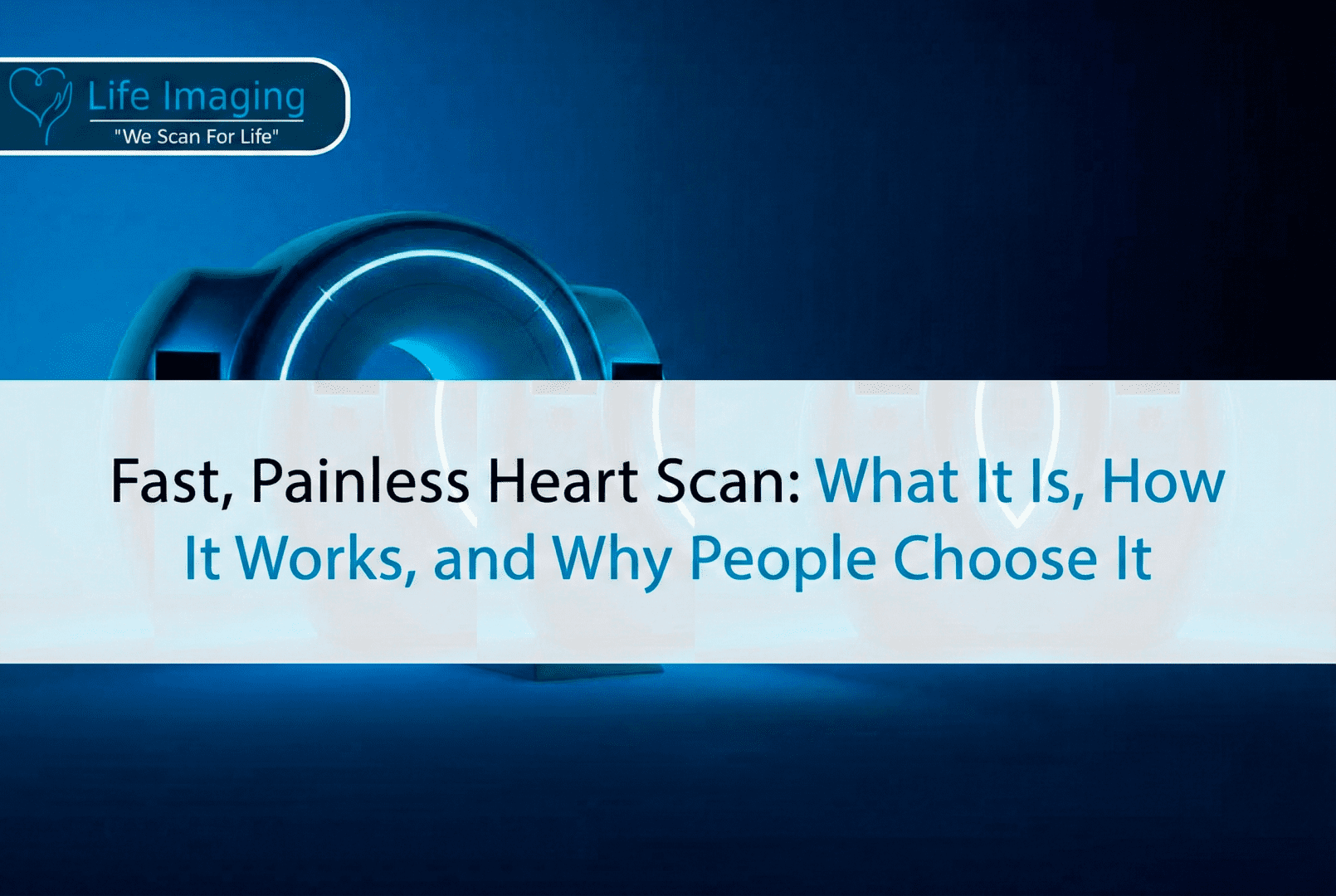
Fast and Painless Cancer Scan: What It Really Means PREVENTIVE
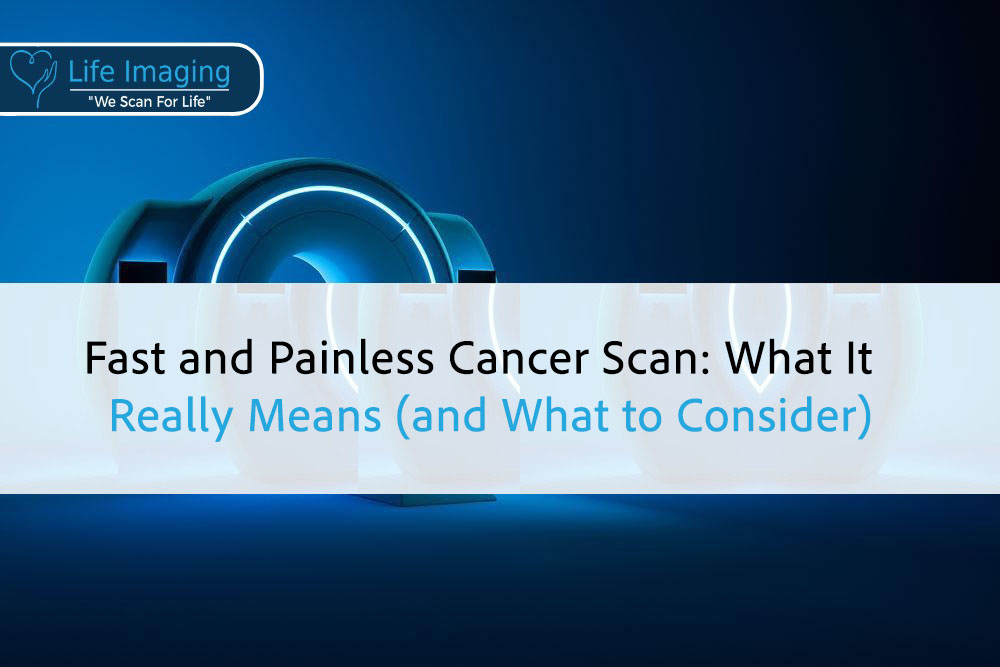
Fast and Painless Cancer Scan: What It Really Means (and
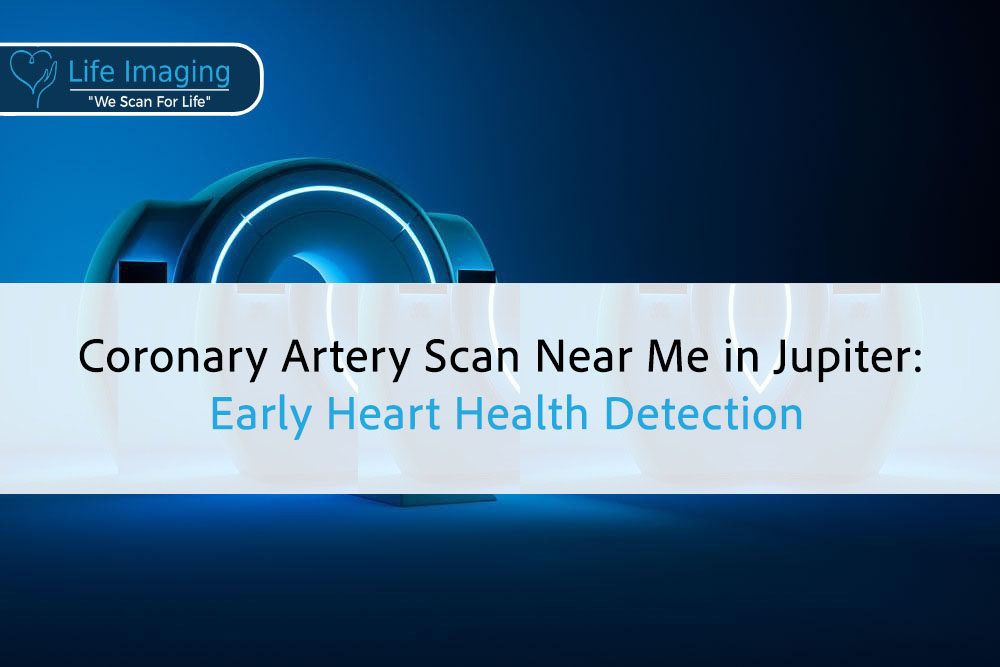
Introduction Your heart works hard every second of the day,
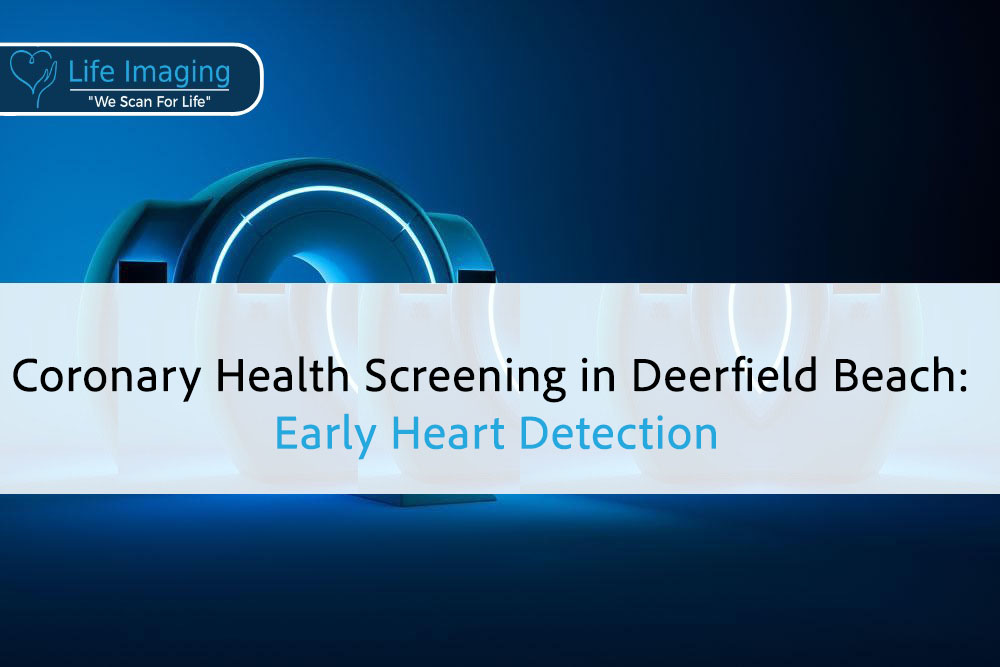
Introduction Your heart works around the clock, but changes inside
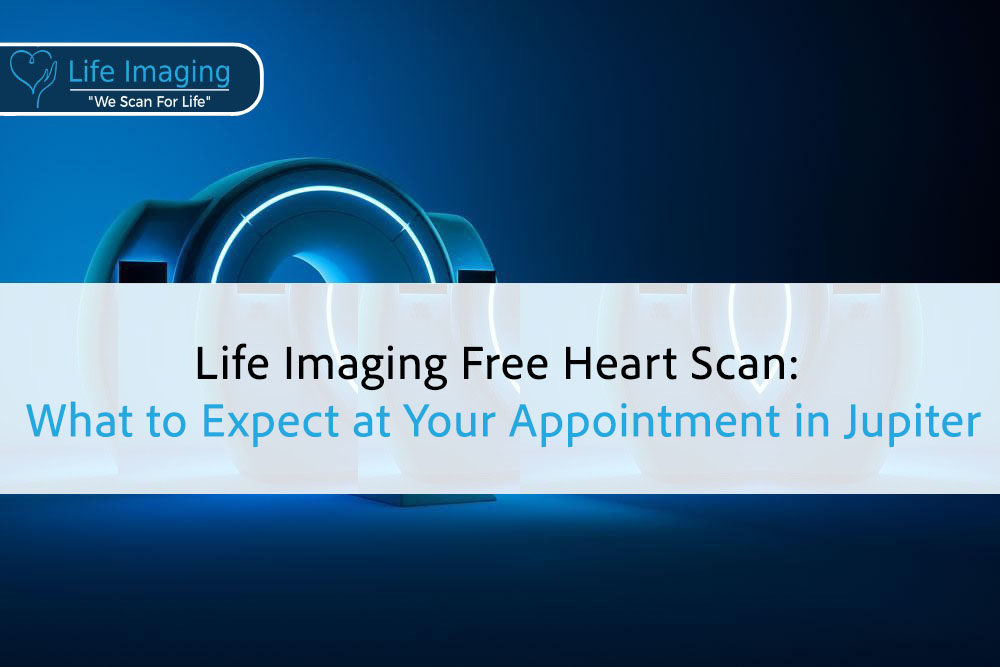
Introduction Your heart works nonstop, often without a single complaint.

* Get your free heart scan by confirming a few minimum requirements.
Our team will verify that you qualify before your scan is booked.
Copyright © 2025 Life Imaging – All Rights Reserved